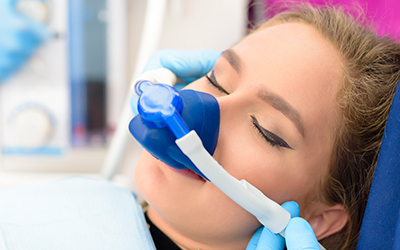Image Credit:
File ID 83891650 | © Oneblink | Dreamstime.com

Understanding your sedation options can help alleviate anxiety and ensure a comfortable experience. Local anesthesia numbs the specific area being treated, while IV sedation induces a relaxed state where you may doze off but remain responsive.
General anesthesia, on the other hand, puts you into a deep sleep, ideal for complex or lengthy procedures. The choice of sedation often depends on the complexity of the surgery, your medical history, and your personal preferences.
If you're dealing with a painful infection or feel anxious
The use of general anesthesia or IV sedation during oral surgery can provide a number of benefits.
First, these methods will provide complete pain relief and comfort during the procedure so you can relax and not worry about any discomfort.
Second, they will lower anxiety and stress, especially if the dental work is more extensive.
Thirdly, with fear and discomfort taken away, being put to sleep will contribute to a more pleasant surgical experience.
Although sedation offers benefits, it is important to review its potential risks and complications. Some of the complications with sedation include nausea, vomiting, allergic reactions, or possibly more serious complications (although this is rare).
You should talk with your dentist or oral surgeon about your medical history, the medications you are taking, and any other concerns you may have ahead of the time you are planning to have sedation. The dentist or oral surgeon will evaluate your situation and offer you the safest and most appropriate possible sedation.
Contact Coastal Periodontics today to schedule your consultation and ensure you receive the best care tailored to your needs. Our team prioritizes your comfort and safety during oral surgery. Whether considering sedation for a tooth implant and bone graft or laser treatment for receding gums, our experienced team is here to guide you through the process.